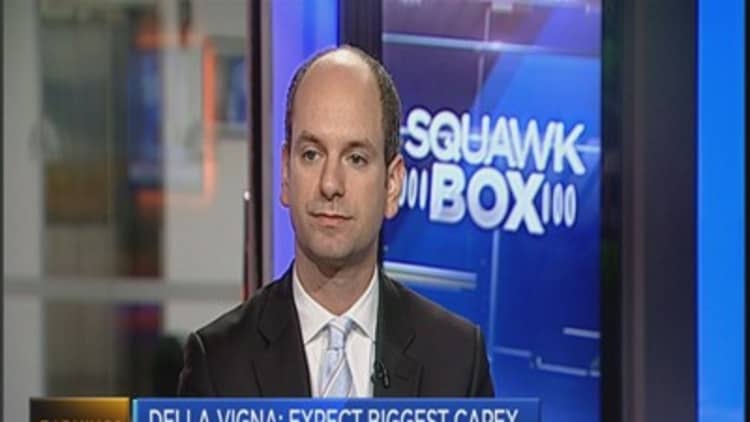
Ratings agency Moody's has cut its price outlook for the both Brent crude and WTI, believing the rise in prices will take place at a much slower pace than originally forecast as oversupply and demand issues show no signs of waning.
The agency downgrade it price assumption in 2016 for Brent crude to $53 per barrel, down from $57. WTI was cut to $48 from $52 per barrel.
Moody's expects both prices to rise by $7 per barrel in 2017, which is down $5 per barrel from its prior forecast.
"We believe that oil prices will remain lower for a longer period, as large built-up inventories and oversupply cause oil prices to increase at a slower rate," said managing director of corporate finance at the group, Steve Wood.
"Although supply should begin to drop as capital spending declines, increased Iranian exports could place additional pressure on oil prices in 2016," he added.
Oil prices suffered on Monday following economic data from China, the world's largest energy importer, which showed its economy grew at the slowest pace in six years in the third quarter, according to official data released on Monday.
Brent for December delivery tumbled over $1 or 2.3 percent, at $49.31 a barrel in afternoon trade in London.U.S. crude for November delivery slipped 74 cents, or 1.6 percent, at $46.44 a barrel, recovering slightly from earlier losses.
The price of oil has collapsed from near $120 a barrel in June last year to lows of around $40 in August.
Cost cutting boost?
But the battered and bruised oil industry could see some upside in the medium term if it sticks with its period of cost cutting, according to Michele Della Vigna, co-head of European Equity Research at Goldman Sachs.
"Sentiment is changing," he told CNBC Monday. His team of research analysts closed its "underweight" rating on the European integrated oils sector last month. But, Della Vigna argued that fundamentals were also changing alongside investors' outlook.
"On the oil price, yes, we do still expect six to nine difficult months as we need to digest this oversupply. But, longer term, we start to see some adjustment mechanisms coming into place," he said.
He explained that U.S. shale production was slowing - Baker Hughes data on Friday confirmed that the oil rig count fell for a seventh consecutive week. He also said that two of the big engines of production growth - Iraq and Saudi Arabia - would "probably" see also slower growth in production.
"If we look forwards, the key thing will be: 'Can Big Oil cut costs substantially, improve capital efficiencies, so that they rebuild their free cash flow which has been eroded in the last ten years?'," he said.
Major oil producers in Europe, and the U.S., have been busy with restructuring and cost-cutting since oil's dramatic fall began in mid-June last year. It hasn't stopped yet, however, with France's Total announcing a deal to sell a 15 percent stake in a Norwegian oil field on Monday.
Bob Parker, a senior advisor at Credit Suisse, told CNBC Monday that it was now a "cost-cutting" industry and predicted that earnings will simply be driven by consolidation. Free cash flow and a potential dividend for shareholders can only be sustainable if the sector cuts operational and capital expenditure by 30 to 40 percent, Della Vigna added.
The dramatic fall in prices was due to weak demand, a strong dollar and booming U.S. oil production, according to the International Energy Agency (IEA). However, OPEC's (Organization of the Petroleum Exporting Countries) reluctance to cut output has also been seen as a key reason behind the fall.
On Monday, the Iranian oil minister signaled that he didn't expect a change in production output when OPEC meet in December to decide on its quota, according to Dow Jones. Bijan Namdar Zangeneh also said that OPEC members would be satisfied with oil prices above $70 a barrel, the news agency reported.





